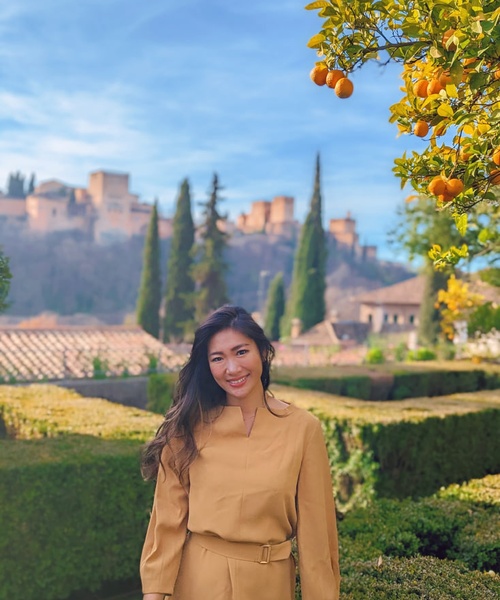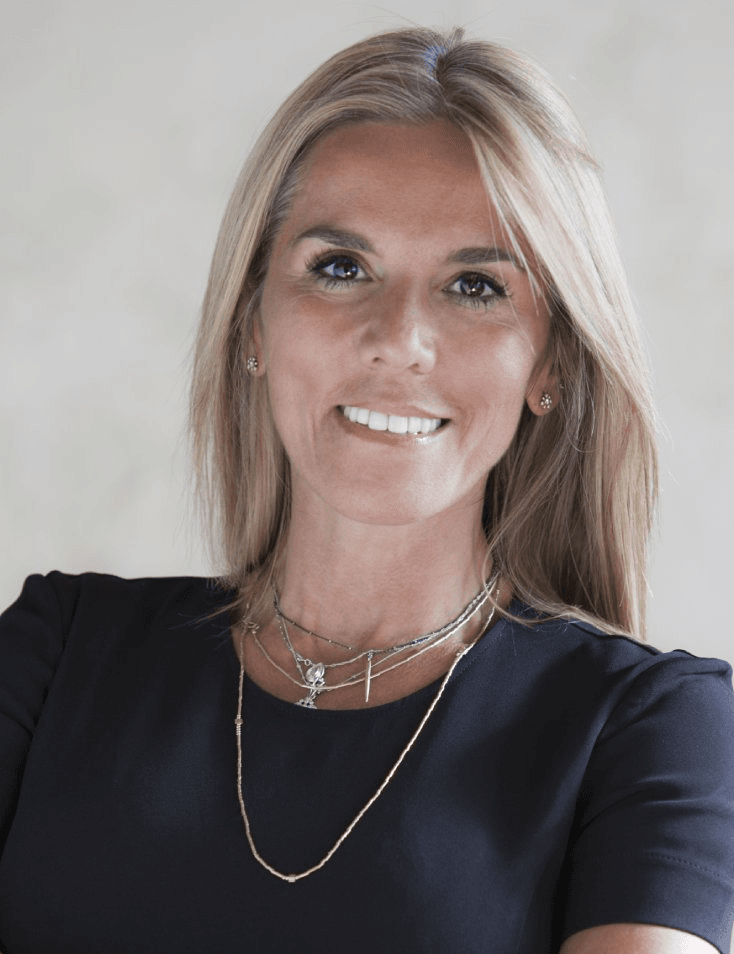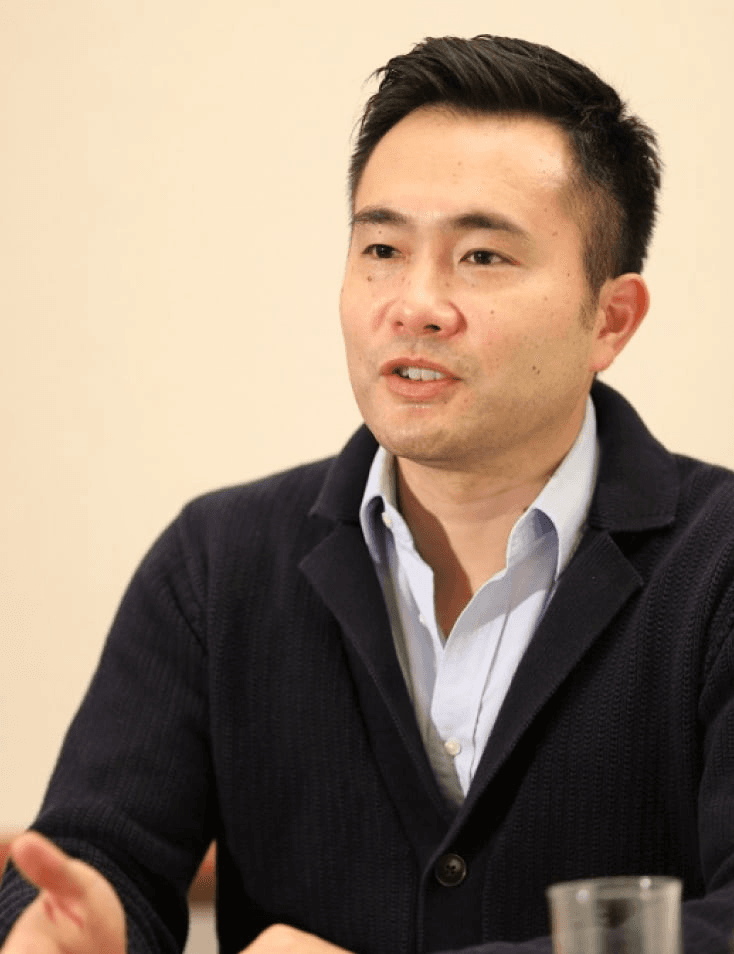
Yoko Kojima
Originally from Japan, I grew up living abroad here and there, in Australia, Canada, and the U.S. When I was 20, I was hoping to make the world better by studying political science and becoming a diplomat. I was particularly interested in energy security at the time, and given the political situation between Russia and Japan I also decided to learn Russian. After graduation, I got a job at Hitachi, where I was doing most of the Official Development Aid (ODA) projects. I was specializing in renewable energy, doing projects finance and project management in different parts of the world, including Turkey, Slovenia, and the U.S. After five years, I started to question if I was making a real impact with my work. I was approaching my thirties; and I started asking myself, “do I want to revisit what I wanted to do when I was young?” I started thinking about different career pathways, and the one I thought was the most attractive was working for the United Nations, the World Bank, or one of such multilateral organizations. I knew the prerequisite to apply for this kind of positions was having a master’s degree from a non-Japanese university. I started looking for options that would allow me to combine my previous work experience with my original interest in political science. While looking for dual degree programs, I was also looking for a country in which I could learn French or Spanish, because I wanted to expand the geographical area of my operation. That’s when I decided to choose IE, where I had the opportunity to do internships at a Spanish finance company and the World Bank. Nowadays, I’m head of ESG at Mundi Venture, a Spanish venture capital firm with 500 million dollars asset management. My professional life is still work in progress, but I am really happy with the decisions I’ve made.
“Be fearless.”
Q&A WITH YOKO
Define your experience in the IMBA program in one word.
Essential.
Was your previous work experience fundamental to secure a position in the IMBA program?
I wouldn’t say it is a prerequisite, but it really helps to maximize your experience. And I don’t think people have to live abroad for extensive years, but rather to have a mindset of being open and courageous. I think the MBA is about risk-taking because you are kind of backing off from safer environments, and the norm is that there are many things happening, and things are constantly changing, and everything is new. In the Asian culture, and in the Japanese culture specifically, we are told not to speak up or share our opinions. I say this because I know IE has traditionally 5-10 Japanese students a year as far as I know. Even those who have never lived abroad, if they have somewhat of this mindset, I see them making friends and making connections, so it is helpful.
How did your experience at IE prepare you for your professional career? In what ways do you think the program has changed your life professionally and personally?
It helped me in two ways, one is more a dry fact of professional career development, from a job and talents recruiting industry point of view: if any of the students want to get a job in Europe, the first thing to do is not necessarily have a European passport but rather to be here. The second part is more directly related with the experience of the MBA and how it has prepared me, and there I want to mention two things: I was already interested in impact investing, and I had a couple of finance type of roles in the past, so I had my basics, but I needed to study new concepts. IE had a way of choosing subjects that suited me, the dual degree was essential because I needed to have it both ways. The second part is about personal development: learning how to take risks and be somewhat half-blind to go with it, with the faith that I can get something out of it or step up my game if I take this risk. This is essential for my profession, my work is evolving quickly, and the field of venture capital is talking to everybody nowadays, even though sometimes the relationship with a particular start-up or a particular investor starts in a cold place, you see how to bring it to a warm place; so that was essential.
What were some of the main challenges that you encountered on your way? How did the program and IE help you through these challenges?
Right until I chose this place for my post-career choice, I went through the emotional and mental roller-coaster of what would be the best possible opportunity for me, after all I was tking a couple of years off to do this, so I needed to make sure it is something I would be happy with. So, the challenge I faced was more about knowing myself, I would say. I will give you a great example. I got out of the program with two job offers, and I was torn between them. It was really tough because I knew both companies and I worked with them previously, so I knew the people as well. So that made me focus again on what exactly was the thing that drove me here. That was one of the biggest challenges. There are others that are work related, and with the fact of getting into the Spanish community. The one challenge I experienced at IE was getting into the Latin American culture, or getting into the culture that is dominant within the classroom. I had a class with a lot of Americans, everyone was speaking a lot, and that was not really in my blood. In the Spanish and Latin American cultures, everyone expects you to be there, hang out, and socialize all the time in order to be trusted.
What is one thing you wished you knew, when you were a student?
It might be a cliché, but it is that things really finish quickly. I got here two years ago precisely, but since then, I received the MBA, the second master, and now I’m developing my professional career. My close friends, my circle of friends, or the people I was committed to professionally; they come and go. Not necessarily from a point of personal distance, but rather a physical distance. So, to be more appreciative, even though you are feeling anxious about a particular project or not happy with the work the other member did, you don’t really have much time to show your appreciation or a mature way of communicating the friendship.
What’s your favourite memory from your time at IE?
Choosing only one is difficult. One of the favorites is actually a project I did for an impact investing competition; it is something IE offers, but students can take it on a voluntary basis. It was not only good for the professional career that I am living now, since it was a tough project—we were five girls and we had different motivations for the project. It is not a happy memory, but it was one of the most valuable lessons I had. So, I would say it was really good I did that. The second one is more of a favorite memory. In the first semester of the MBA, we had a weekly cultural social cooking within the whole class—at the time COVID was happening. We took turns by country. One of those was making dumplings together and it was one of the first socials I did as an MBA. That was amazing.
Can you explain what your role as Head of ESG entails?
Head of ESG entails everything about sustainability and Environmental, Social, and Governance at the operation. As a venture capital firm, our operation is mostly about investment, and they didn’t have anybody as a full-time person before me working on sustainability, so it was really creating a department from scratch. Design and implement the process of ESG analysis into every phase of the investment cycle. The investment cycle starts with sourcing, so where can we find sustainable companies? What are the questions we need to ask in the initial phase of the due diligence, through the action of due diligence, and doing a deep analysis before making an investment decision. Post-investment, I work on a project basis with start-up companies with value-creation projects. One could be about funding sustainability- minded customers, and how can we quantify the particular benefits they have. If they don’t have employee benefits, then how can we implement it. Making sure the start-up abides by regulations. The other pillar is about reporting the measurements of the ESG footprint. We have 75 campaigns now in the portfolio. It is going really in detail to look at the expense of the year to calculate the carbon footprint and putting it into a report to publish it to the general public or for the entrepreneurs.
What are the benefits of a corporate ESG strategy?
The world has been thinking about sustainability since it can be a competitive advantage in economic benefit or financial return ensuring it in the long term. It is important to pursue the ESG strategy from those economic lenses as well. But to begin with, ESG is a must: even though I might not know if my day-to-day operation is affecting polar bears in Antarctica, you can see the consequences everywhere. You don’t need to know the entire theory or the chain reaction, you can see people suffering and that should be enough. The social part of ESG is intertwined, not only with marginalized communities but also with how the environment affects us.
Should there be more regulation in the reporting and compliance of businesses ESG data?
I would say yes, we need more rigorous and thoughtful regulations. For example, the EU taxonomy and sustainable climate disclosure regulation, these two have been considered as the most progressive ESG regulation in the world. I was working in EU taxonomy before, and it is an extensive work done by working groups of industries. It is an intense process, but it is necessary, trying to have standards that works for everybody, even though there is no one-size- fits-all. From the VC perspective, they invest in upcoming technology, so how can we make sure this particular AI algorithm is ethical? Is there a regulation, is there a certificate that we can refer to? How can we validate it? The current way that we have to divide industries does not really work there, so that kind of regulation that fits every company is essential.
Can sustainable finance help us with the cultural change needed to achieve the world’s transition to net zero?
I would say yes, absolutely. I am a firm believer. You talk about a cultural shift, and I think that’s the key. Everyone consumes something, and everyone is involved in economic activity, and when you change the way we offer it as a human society, which is the economy that touches everybody’s mind, it is not the textbook that does the work. It is important to implement it in our day-to-day life, both in B2B and B2C. It is needed and helpful.
What can alumni do to create a positive impact, not only within the IE community but also for the rest of the world?
IE Alumni have a good spirit to be curious and always do more. I would give a more technical suggestion. I think using a lot of networking tools, for example, I use LinkedIn a lot, to stay connected with all the parts of your interest areas. We are all multifaceted human beings, I dance, I paint, and I like wine. It might not be possible to combine all that in your work, but it is important to keep your avenues open. So when an interesting project comes on the weekend, you can participate and expand your contribution there. So, to stay open to other opportunities, connecting to people consciously is the way to create an impact.
How is the Yoko of today different from the Yoko who graduated from IE?
There is a huge difference. My friend was looking at my picture, and she said “your face is so different!” I haven’t gained or lost weight; I think it is more the experience that comes to you and is shown in your expressions. I would say I am more confident. I was more courageous, and now I am more confident. Whenever I take risks, I take a calculated risk and that is something I learnt in the program. I also have more faith. So, faith and confidence. Although I am still learning a lot.
If you had a billboard that you could display to the world, what would you write on it?
Be fearless. Love your family.
TO CONNECT WITH YOKO, CLICK HERE

